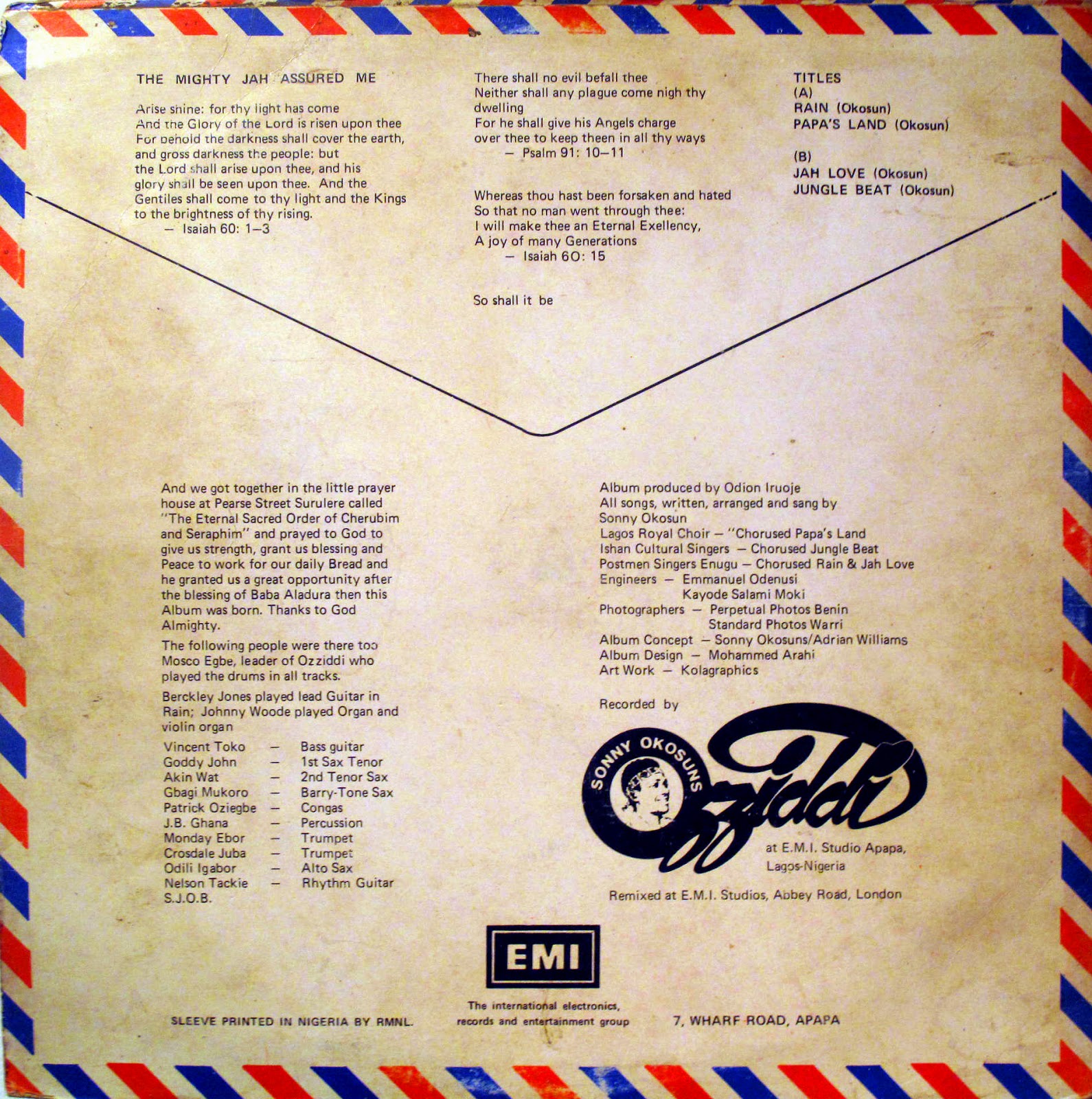I discovered this Solo Hit on Analog Africa label and I can't help sharing it
"Solo Hit's real name is Ohieirme, which means 'God gave me'. He was born in 1954 in Avbiosi, Western Nigeria. His father, Igbuan, was a popular guitar player and his mother composed and sang songs in the local idioms, while she worked at home. Legend has it the people of Avbiosi were known for their ability to soothsay.
After college Solo Hit went to the North to pursue a career playing rock music, but was lured back to play in Waziri Oshomah's highlife band before joining Sir Victor Uwaifo's Titibitis band in 1978 as the 2nd Rhythm guitarist. He stayed with the band for 5 years, before forming his own, which went under the names Solo Hits and his Ododo Soundz International. The word Ododo refers to the Edo people and is sometimes translated as the word 'rare truth' or 'beautiful flower'. He then began recording LP's with several of the top record labels in the area including: Iroube Records in Eruere, Atose records based in Sabongidda-Ora and Akpolla Records in Benin City.
Most of the music on these LP's is listed as Owan Native Blues or Luleha Native Highlife. The two tracks presented here were released on an earlier LP he did in 1981 when he was still a member of the Titibitis. Recorded at the Victor Uwaifo's Joromi studio, ths unique sound was dubbed Oba Afro Funk. According to Professor Victor Uwaifo it was a mixture of Ekassa music and pop sung in the Ora dialect of the Edo language. The sound on all his recordings reflects the way Solo Hit mined the local Edo folklore for rhythms and stories to use in his songs."




.JPG)
.jpg)


.jpg)
.jpg)
+FRONT.jpg)
+BACK.jpg)
.jpg)
.jpg)
.jpg)
.jpg)
+front.jpg)
+back.jpg)

.jpg)










.jpg)
.jpg)
.jpg)









